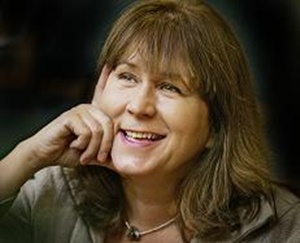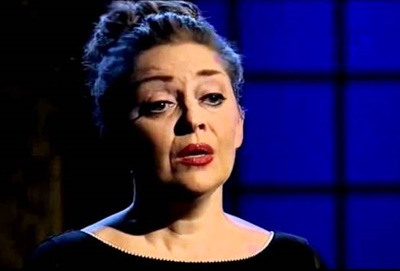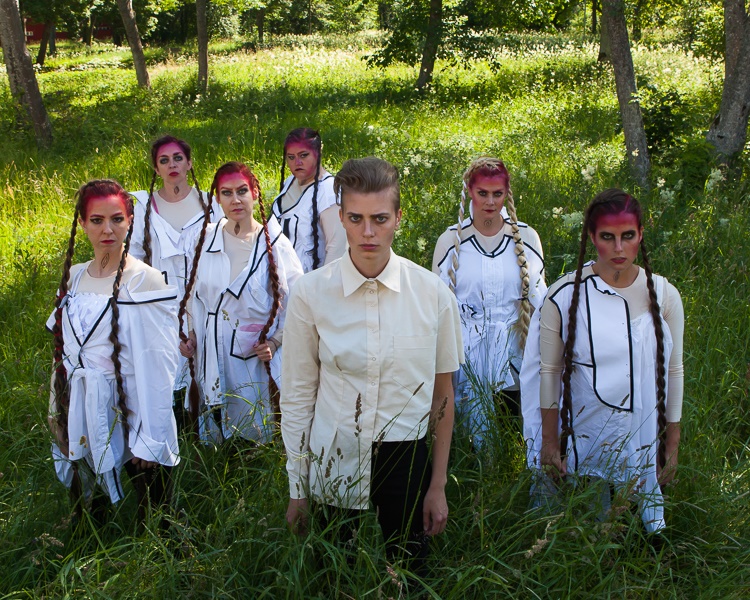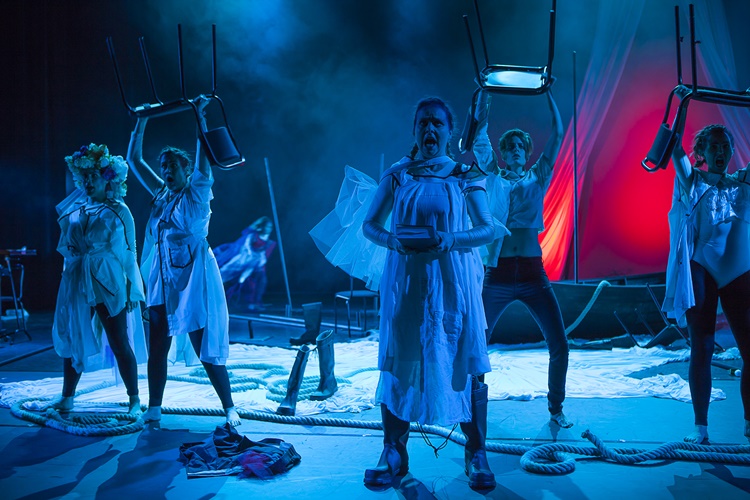The Nordic opera MagnusMaria that will be on the stage of The National Theatre, June 3rd, as a part of the Reykjavik Art Festival, tackles gender issues and gay, transgender and women’s rights with the true story of the 17th century girl Maria Johansdotter from Åland who was better known as Magnus Johansson throughout her life.
The part of Magnus/Maria is played by a group of women from Iceland, Sweden and Åland, in fact all the parts are played by women. Furthermore the whole production is run by women, among them is the renowned Icelandic composer Karólína Eiríksdóttir who writes the music to Katarina Gäddnäs’ libretto.

The Icelandic composer Karólína Eiríksdóttir wrote the music to Katarina Gäddnäs libretto that tells the story of Maria Johannesdottir that became Magnus Johannesson.
“The poet and author Katarina Gäddnäs and the congresswoman Barbro Sundback from Åland, are the ones who got the ball rolling,” says Karólína. “They felt it was about time that this 300 year old story of Maria and her struggle with discovering her true gender was told.”
Maria Johansdottir, from Åland, was born with musical talents and was taught by her father to sing and play various instruments. As an adult she lived in Stockholm working as a musician. It was considered highly inappropriate that a women made a living by performing music, and not only was she treated with disrespect because of her gender, she also got paid less. So she became Magnus Johansson instead and discovered that she liked it and ended up living as a man and having many female lovers. Unfortunately she had to face the consequences of that decision and was called in front of a judge where the public wanted her to be burned to death.
“It’s astonishing to think that even today people are still fighting for the same human rights as Maria was fighting for, the right to be able to live as yourself, no matter who that is,” says Karólína. “I know all of this sounds very serious, which of course it is, but the story is also told with some sense of humor. The singers on stage, who have the close relationship with the audience, say that the opera leaves people crying and laughing.”
“It’s astonishing to think that even today people are still fighting for the same human rights as Maria was fighting for, the right to be able to live as yourself, no matter who that is.”
This is Karólínas’ fourth opera and it’s received raving reviews where it has been performed and the Hufvudstadsbladet in Helskinki said that “It’s rarely that you experience a freshly composed opera carrying such a strong message for our times.” Furthermore the Svenska Dagbladet called Karólína Eiríksdóttirs’ operatic score “a delight, … sharp and well formed, and works well on the stage.”

“Writing music for instruments is very abstract, since there is no story being told, contrary to opera music where the emphasis is on interpreting a story and the importance of delivering the libretto. Working with a good text is very enjoyable since it sparks numerous ideas,” explains Karólína.
One of the ideas the opera MagnusMaria sparked is to apply the theme of the story to the whole production where all the work traditionally done by men are done by women instead. “We’re not all women, half the orchestra – which is Finnish – consists of men,” says Karólína. The singers on the other hand are all women, and they both play male and female parts. “During the 17th century when our story takes place, men were traditionally casted as women in an opera.”
When asked Karólína says that MagnusMaria might one of the first operas that deals with gender issues, gay, transgender and women’s rights. “Telling a story like this in an opera tells us that it’s a strong and vibrant art form that still speaks to the audience.”
The opera MagnusMaria will be performed in Swedish with Icelandic subtitles at the National Theatre (i. Þjóðleikhúsið) June 3rd during the Reykjavík Art Festival.
Photos (top and bottom): Tina Tahvanainen



